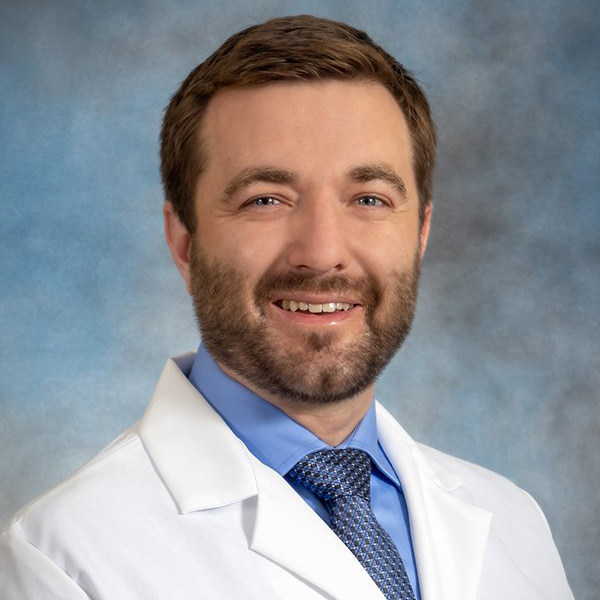Alumnus David Buzanoski Becomes Midland Community Assistant Dean
August 26, 2022
 After growing up on an apple farm in Maine, David Buzanoski had a particular type of program in mind when he began applying to medical schools.
After growing up on an apple farm in Maine, David Buzanoski had a particular type of program in mind when he began applying to medical schools.
“I wanted a school that would allow me to learn and practice in a non-urban area,” he said. “It’s actually what drew me to MSU.”
After graduating from the College of Human Medicine in 2011, including his last two years in the Upper Peninsula, based at the Marquette campus, Buzanoski completed a combined residency in internal medicine and pediatrics in his native Maine.
He’s back in Michigan now with a practice in Midland. On July 1, he assumed a new position as the College of Human Medicine’s community assistant dean for the Midland campus. Many of the Midland students chose that campus for the same reason Buzanoski first came to MSU: because of their interest in rural medicine. Many are enrolled in the Rural Community Health and the Leadership in Rural Medicine programs, studying and serving patients across several counties in the northern Lower Peninsula.
The College of Human Medicine created those programs to meet a need for more physicians, particularly in primary care, in rural areas and small towns.
“One thing we want to do is be sure we’re retaining talent,” Buzanoski said. “That’s part of the mission of the college, to serve the needs of the state.”
He met his future wife, Kristin Busch, while both were students at the college’s Marquette campus. She is a colorectal surgeon in Midland and clerkship director for surgery at the Midland campus.
Since returning to Michigan, Buzanoski has mentored many medical students, and this year he received the Outstanding Community Faculty award for the Midland Regional Campus. He succeeded Paula Klose, MD, the founding community assistant dean for the Midland campus, who recently retired.
“She left a good road map for me,” Buzanoski said. “I feel like I’m stepping in when our campus is in a good spot. What I’m most excited about is helping the Midland campus continue to grow.”
Working with medical students, he said, is “incredibly rewarding. I get a lot of pleasure seeing students at the start of medical school and at the finish line when they’re graduating. Yes, it’s hard, but I’m doing what I want to do. I still see my patients three days a week, and I can help shape the physicians of the future. I’m exactly where I want to be.”

